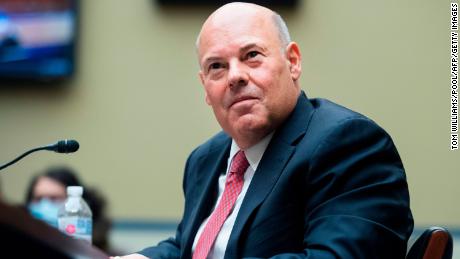Seared in my memory as a former White House adviser is a lesson President Joe Biden’s team is learning today: Hard as you try to drive a message, major unforeseen events intrude, diverting public attention and demanding your response.
When the White House announced eight days ago that Biden would hold his first formal press conference on Thursday, his team probably hoped to use the exchange with reporters to tout progress on the Covid-19 vaccine rollout and the virtues of his signature American Rescue Act which greenlighted stimulus checks, as well as more aid for the unemployed and Americans facing eviction, and additional support for small businesses.
Since then, two mass shootings — in the Atlanta area and in Boulder, Colorado — have rekindled demands for federal action for stricter gun laws. While the pace of vaccinations rapidly accelerates, the number of Covid cases has climbed as states across the country are beginning to reopen. Illegal border crossings by unaccompanied minors are increasing, as is friction among factions of the Democratic base.
As if that weren’t enough, rhetorical salvos have flown between the US and its two most irksome adversaries, China and Russia, portending challenging days ahead. And on the eve of the press conference came news of provocative new ballistic missile tests by North Korea.
In fact, a week that was supposed to feature presidential events to lift up and underline the Rescue Act has yielded entirely different and vexing storylines that you can be sure will dominate Thursday’s session.
Eager to avoid unforced rhetorical errors, Biden’s team did a brilliant job throughout the general election campaign of controlling his interactions with the news media, mitigating the risk of unintended stories. That has continued during his first weeks in office. Americans mostly have heard from their new President in scripted remarks.
It’s in marked contrast to his ubiquitous predecessor, who was always eager to share every thought — well-founded and truthful or not.
Biden has done relatively few interviews. (In fairness, even Trump limited most of his interviews to the fawning precincts of Fox News.)
As president, Biden participated last month in a televised CNN town hall with citizens, a format that allowed him to display his prodigious empathy and decency, with limited opportunity for follow-ups from the moderator.
Thursday’s event will be a more challenging format, with reporter questions and follow-ups.
Biden may choose in an opening statement to make an announcement that he hopes will drive the news coverage. He will be furnished with a list of questioners, carefully curated by the White House press secretary, Jen Psaki. As is customary, he will have spent hours prepping with his team.
But rigorous though his prep may be, Biden and his team can only guess at the nature of the questions, many of which will be shaped by the events of the past week and even the hours before he takes the podium.
Some questions may come with a twist. Last week, in one of Biden’s rare interviews, ABC’s George Stephanopoulos asked the President whether he thought Vladimir Putin is a “killer.” Biden paused, but after a moment of hesitation said, “I do.” His blunt characterization of the Russian president touched off a diplomatic furor and probably was not the news the White House wanted to make.
When he steps up to the podium Thursday, Biden’s aides and advisers will be hoping that the questions he hears will be familiar and the news he makes intended. That podium, with the presidential seal affixed, is a powerful platform but there is no guarantee.
Buffeted by unanticipated events and lines of questioning — and complicated by the President’s tendency to occasionally drift off point — the White House communications machine is hard to control.
Thursday will be an interesting test for this nascent presidency.






